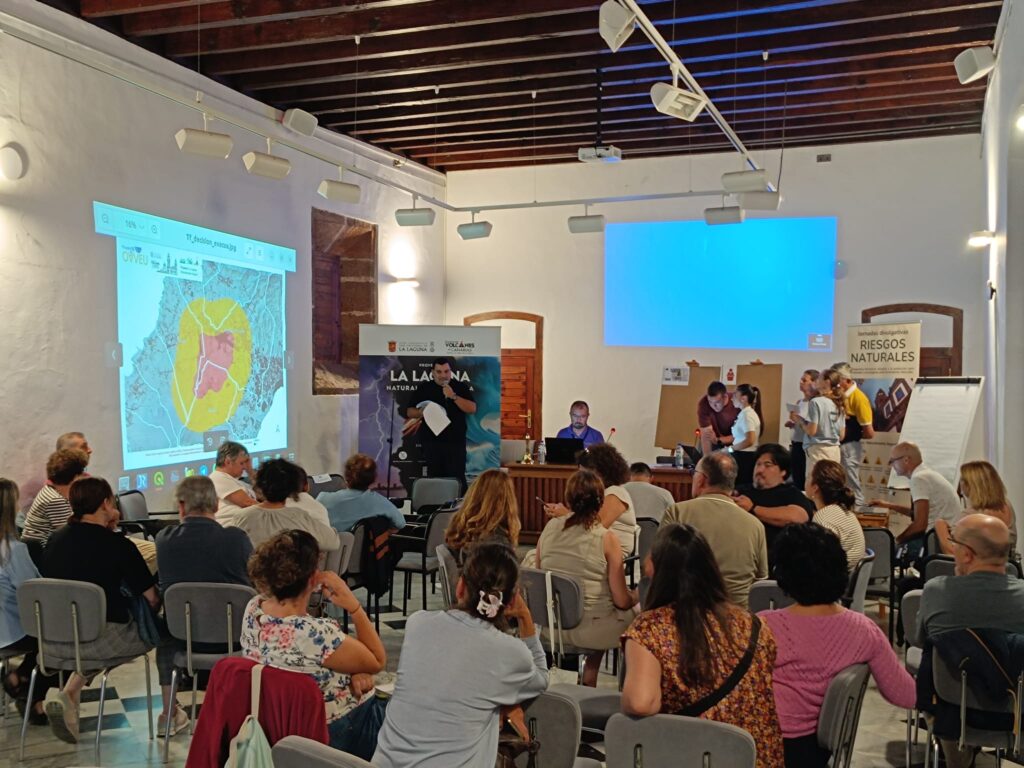Once he Canary Islands Parliament rejected the construction of the Port of Fonsalía On October 27, the Canary Islands Coalition proposed that the money to be used in the preparation of a study of alternatives on the maritime connection with the Green Islands should be used to protect and investigate the cetaceans that inhabit the Southwest of Tenerife. For this, the regional deputy for the Island and secretary of the Organization of the Tenerife nationalists, Rosa Dávila, announces that DC presents an amendment to the General Budgets of the Autonomous Community of the Canary Islands for 2022.
The proposal is that the 300,000 euros that the Government of the Canary Islands wants to spend on the «macro-study with which it wants to justify the construction of the Port of Fonsalía, be allocated to the Research Group on Biodiversity, Marine Ecology and Conservation of the University of La Laguna»In order to study the protection of habitats and the conservation of cetaceans in the southwest of the Island.
The nationalist deputy explains that the intention of CC is that, instead of the 300,000 euros for the macro-study of Fonsalía, «That money is destined to the protection» of the colony of cetaceans that inhabit these waters «to protect the first whale heritage of Europe and kilometer 0 of the world biological corridor, with one of the few resident populations of pilot whales that exist in the world, in addition to 74 other protected and threatened marine species ”.
Dávila hopes that the approval of this proposal, for which he urges parties such as Sí Podemos and Nueva Canarias, which make up the quadripartite part of the regional government, to support this amendment so that “Be consistent with your rejection of Fonsalía”. In fact, the last agreement of the Autonomous Chamber against the execution of this work on the Isoran coast was an initiative of the podemistas and had 24 votes in favor (Sí Podemos, CC-PNC and NC), 13 against (PP , ASG and Cs) and 21 abstentions (PSOE).
The Secretary of Organization of CC in Tenerife recalls that, months ago, CC definitively rejected the project of the future port of Fonsalía for the impact that this project would have on cetaceans and other protected species that give a high environmental value to the area. This “no resounding” came after a process of internal “historical” debate in the Canary Islands Coalition, the result of which was the rejection of the Port of Fonsalía and the commitment to seek “urgent, real and definitive” solutions to the collapse suffered by the Port of Los Cristianos (Arona) and, furthermore, optimize existing port infrastructures such as Granadilla, Santa Cruz de Tenerife and the aforementioned Los Cristianos.
Own merits
The proposal to allocate these 300,000 euros to the protection and investigation Cetaceans on the Island “is another step that the nationalists have taken in this regard.” Dávila recalls that thanks to the CC governments in the Cabildo de Tenerife –with Carlos Alonso presiding– and in the Government of the Canary Islands it was possible to extend the Special Conservation Area (ZEC) of the Teno-Rasca marine strip and the declaration of La Gomera-Teno Marine Special Protection Area (ZEPA), as well as the declaration of the space between the point of El Fraile (Teno) and Punta Salema or Rasca, in Las Galletas, as the first Heritage Site of Whales of Europe by the World Cetacean Alliance.
“All the environmental protection legislation that exists was achieved with CC governments”
«It was the different nationalist governments that, for example, proposed, processed and approved the Special Conservation Area where the construction of Fonsalía. All the legislation on environmental protection that currently exists was achieved with governments of the Canary Islands Coalition, “he said.
The Government of the Canary Islands and the Cabildo agreed, on October 10, to prepare a study of alternatives to inter-island maritime traffic in the Western Islands in light of the situation of the Port of Los Cristianos and the growing opposition to building the Port of Fonsalía.
















